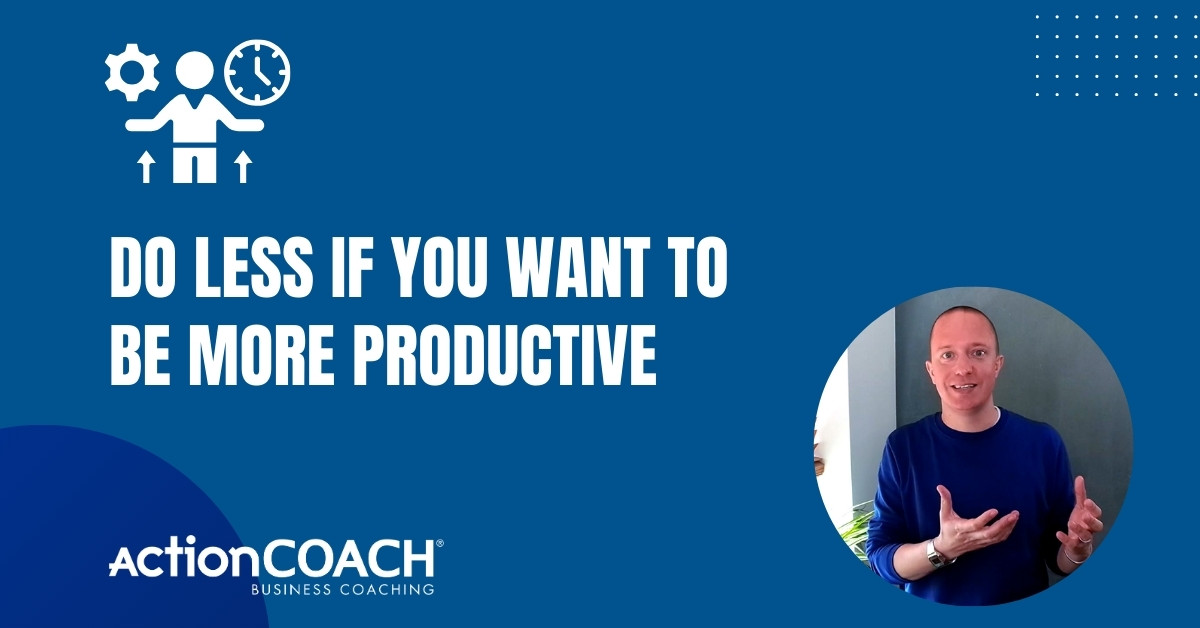Why You Shouldn’t Avoid Failure But Seek It Out
Mistakes happen in business, there’s no avoiding them. But how you react as a leader can make or break your team’s confidence, growth, and success.
In this video, I share a personal story about a team member who made a critical mistake early in her role and how my response shaped her learning experience.
We’ll explore why embracing failure, rather than fearing it, is key to building a high-performing team.
By the end of this video, you’ll have actionable strategies to create a culture where mistakes lead to progress, not punishment. Let’s dive in!
Video Transcription:
I want you to have a think about the last time someone on your team screwed up and what was your reaction? A few years ago I was working in advertising and media and someone on my team had to send a really important email.
It was going to our database of, I don’t know, 15,000 people, the whole media industry, all the bigwigs at ITV where we work. And it was really important that that she got the email right we didn’t want our team to look like idiots which she was quite nervous about, it was her first month in the job and she clicked send and guess what, one of the details is wrong, the date or the price, whatever it was.
What would you say? What be your reaction what has been your reaction in that sort of scenario? I was sitting next to her and I turned around and I said “congratulations, you will never make that mistake again” because we learn so much more from our mistakes and learn so much more by making mistakes than we would learn if everything was plain sailing all along.
So in your team, what do you do when someone makes a mistake do you all get together and learn from it? Or are your team a bit scared about making mistakes, scared of your reaction, scared of owning up, scared of learning?
So have a think about what deliberate things you can do, not just to embrace failure in your team, but to welcome it and to bring it out in the open and to all learn from it together.
Key Takeaways: Why Failure is Your Best Teacher
1. Mistakes Are Unavoidable—So Use Them
Every business, every team, and every individual will make mistakes. It’s impossible to avoid them. The question is, what do you do when they happen?
- Do you immediately step in and fix things yourself?
- Do you blame the person who made the mistake?
- Or do you treat it as a learning opportunity?
Your team will remember lessons learned through failure far more than lessons learned through success. If you react with anger or frustration, they’ll start hiding mistakes rather than learning from them.
Instead, build a culture where mistakes are acknowledged, discussed, and improved upon.
What to Do Instead:
- When something goes wrong, ask: “What can we learn from this?”
- Encourage team discussions around failures—without blame.
- Give employees the chance to fix their own mistakes rather than stepping in immediately.
2. Fear of Failure Leads to Stagnation
If your team is scared of making mistakes, what will they do?
They will:
- Avoid taking risks
- Hold back new ideas
- Hesitate to step up and take ownership
When employees fear mistakes, they only do the bare minimum to avoid criticism. This means your business stops innovating.
But in a culture that embraces failure, your team becomes more creative, proactive, and willing to take responsibility.
What to Do Instead:
- Make it clear that mistakes aren’t career-ending—they’re learning experiences.
- Celebrate when employees try new things, even if they don’t succeed the first time.
- Ensure your team feels safe owning up to mistakes without fearing punishment.
3. Your Reaction to Mistakes Defines Your Leadership
Your leadership style is most obvious when things go wrong. If you respond with frustration, your team will retreat. If you respond with encouragement and a learning mindset, they’ll grow.
Think about the example I shared earlier. If I had reacted negatively to that email mistake, my team member would have:
- Lost confidence
- Been afraid to take initiative in the future
- Started second-guessing herself constantly
Instead, by reframing the mistake as a learning opportunity, I made sure she:
- Learned from the error and never repeated it
- Gained confidence in handling challenges
- Felt supported rather than fearful
What to Do Instead:
- When mistakes happen, stay calm and solution-focused.
- Ask employees: “What do you think went wrong, and how can we improve next time?”
- Make feedback constructive, not punitive.
4. Encourage a Learning Culture
Mistakes should never be hidden or ignored. If no one talks about them, no one learns from them. The best teams actively discuss failures and improve from them.
Imagine if pilots never reviewed flight errors. If doctors never learned from mistakes. If businesses never reflected on what went wrong in a failed launch.
The best teams make learning from failure a habit.
What to Do Instead:
- Introduce a team debrief process for discussing mistakes openly.
- Encourage employees to share what they learned when something doesn’t go as planned.
- Create a culture where everyone supports each other in improving.
5. The Best Businesses and Leaders Fail Often and Fast
The most successful companies and entrepreneurs don’t just accept failure; they seek it out. They test, experiment, and iterate quickly. They understand that failure is a stepping stone to innovation.
If you’re not failing, you’re probably not pushing hard enough.
Businesses that grow fast and dominate their industries aren’t afraid to take risks. They try new things, make mistakes, learn quickly, and move forward.
What to Do Instead:
- View failure as part of progress rather than a setback.
- Encourage your team to take calculated risks.
- Foster an environment where people aren’t afraid to experiment.
The Wrap-Up
If failure is met with fear in your business, you’re missing out on one of the biggest opportunities for growth.
The best leaders create environments where their teams are encouraged to take risks, learn from mistakes, and improve continuously.
If you’re struggling to build a culture that embraces failure, or if fear is holding your business back, let’s talk.
Book a free 45-minute coaching session with me, and we’ll work together on strategies to help you and your team turn failures into fuel for success.



